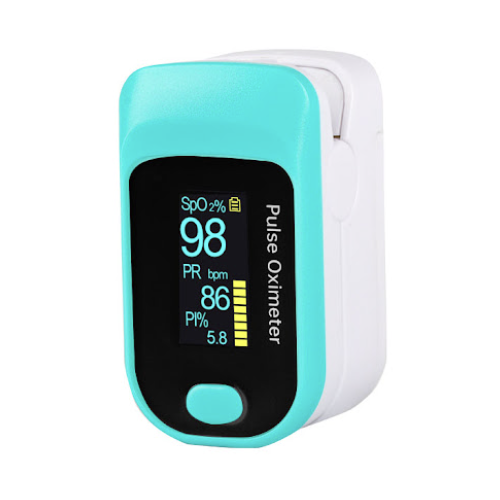Omni M120 Finger Pulse Oximeter
A very affortable Pulse Oximeter from one of our relaible manufactuers. Perfect for Home use to measure your blood oxygen sacturation.
– 2 X AAA battery
– Excellent performance during motion or low perfusion.
– Perfusion Index indicates changes in blood circulation.
– Oled display, four directions.
– Battery voltage indicator.
– Automatically standby or sleep.
– Lightweight for carrying and Easy-To-Use.
Description
Omni M120 Finger Pulse Oximeter
Pulse Oximeter
Pulse oximetry is a noninvasive method for monitoring a person’s oxygen saturation. Peripheral oxygen saturation (SpO2) readings are typically within 2% accuracy (within 4% accuracy in 95% of cases) of the more accurate (and invasive) reading of arterial oxygen saturation (SaO2) from arterial blood gas analysis.[1] But the two are correlated well enough that the safe, convenient, noninvasive, inexpensive pulse oximetry method is valuable for measuring oxygen saturation in clinical use.[citation needed]
The most common approach is transmissive pulse oximetry. In this approach, a sensor device is placed on a thin part of the patient’s body, usually a fingertip or earlobe, or an infant’s foot. Fingertips and earlobes have higher blood flow rates than other tissues, which facilitates heat transfer.[1] The device passes two wavelengths of light through the body part to a photodetector. It measures the changing absorbance at each of the wavelengths, allowing it to determine the absorbances due to the pulsing arterial blood alone, excluding venous blood, skin, bone, muscle, fat, and (in most cases) nail polish.[2]
Reflectance pulse oximetry is a less common alternative to transmissive pulse oximetry. This method does not require a thin section of the person’s body and is therefore well suited to a universal application such as the feet, forehead, and chest, but it also has some limitations. Vasodilation and pooling of venous blood in the head due to compromised venous return to the heart can cause a combination of arterial and venous pulsations in the forehead region and lead to spurious SpO2 results. Such conditions occur while undergoing anaesthesia with endotracheal intubation and mechanical ventilation or in patients in the Trendelenburg position.[3]
Additional information
| Weight | 1 kg |
|---|
Recommended products
Nothing found.


